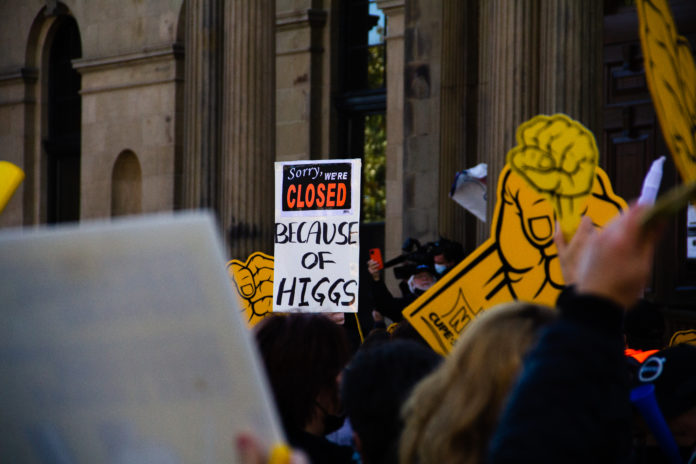
A week of striking and back and forth between the Government of New Brunswick and the N.B. Canadian Union of Public Employees will continue after Premier Blaine Higgs has yet to agree to sign CUPE’s counter employment offer proposed on Nov. 5 at 4:03 a.m.
“We’re in the middle of a pandemic. [Higgs] continues to threaten the legislation [to force employees back to work.] We want you back to work but we also want you to be treated fairly like you deserve,” said CUPE N.B. president Stephen Drost at a news briefing outside the New Brunswick legislature at noon on Friday. “He’s playing with the lives of N.B. here.”
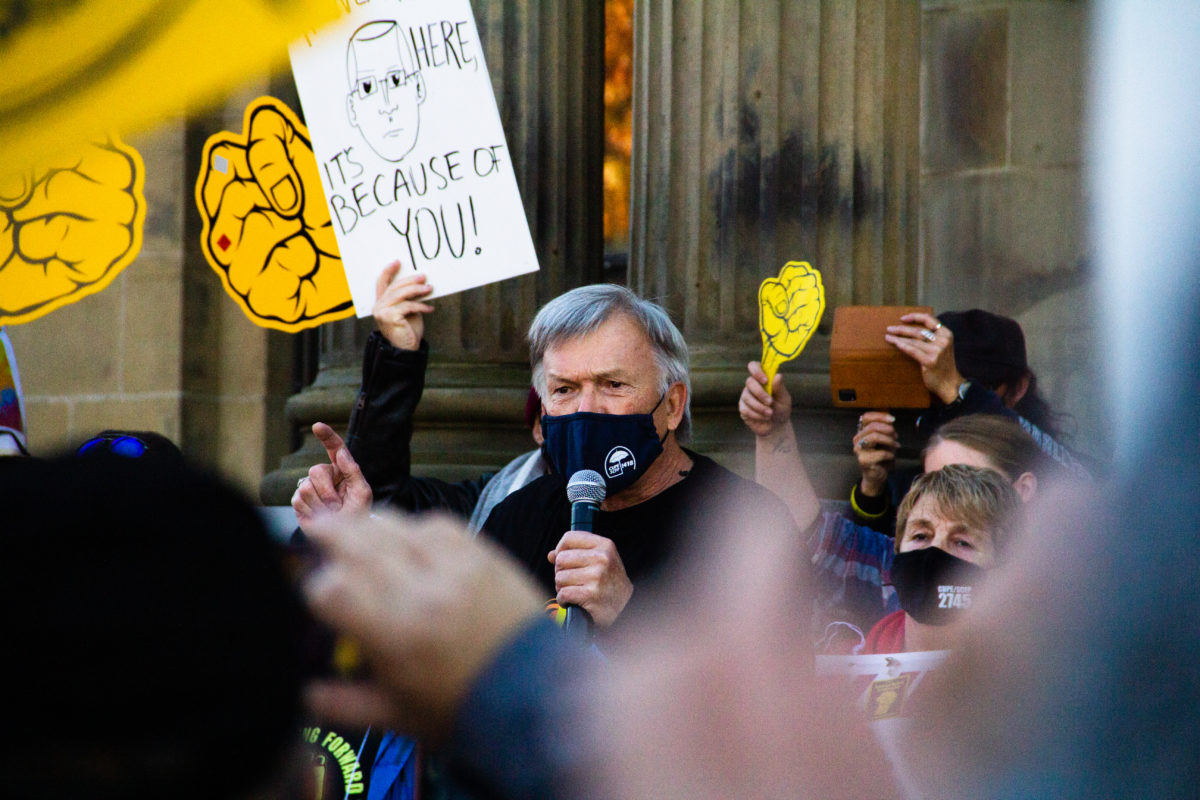
At a news conference on Nov. 5, the government used the Emergency Measures Act to issue an order forcing all striking healthcare workers back to work.
The order only applies to workers in the healthcare field, other CUPE members can continue to strike. It took effect at 11:59 p.m. on Friday.
Not all members of the all-party COVID Cabinet Committee agreed with this measure. Green Party leader David Coon and Liberal Party leader Roger Melanson shared on Twitter following the announcement that they’d be quitting the committee.
“The use of the Emergency Measures Act powers to order public sector workers back to work circumvents the democratic process of the Legislature,” wrote Coon in a Tweet. “This is unacceptable and I will be stepping down from the COVID Cabinet Committee as a result of the Premier’s unilateral action.”
“I’m stepping down from the all party COVID committee. Effective immediately,” wrote Melanson. “The Premier is the only one responsible for this crisis.”
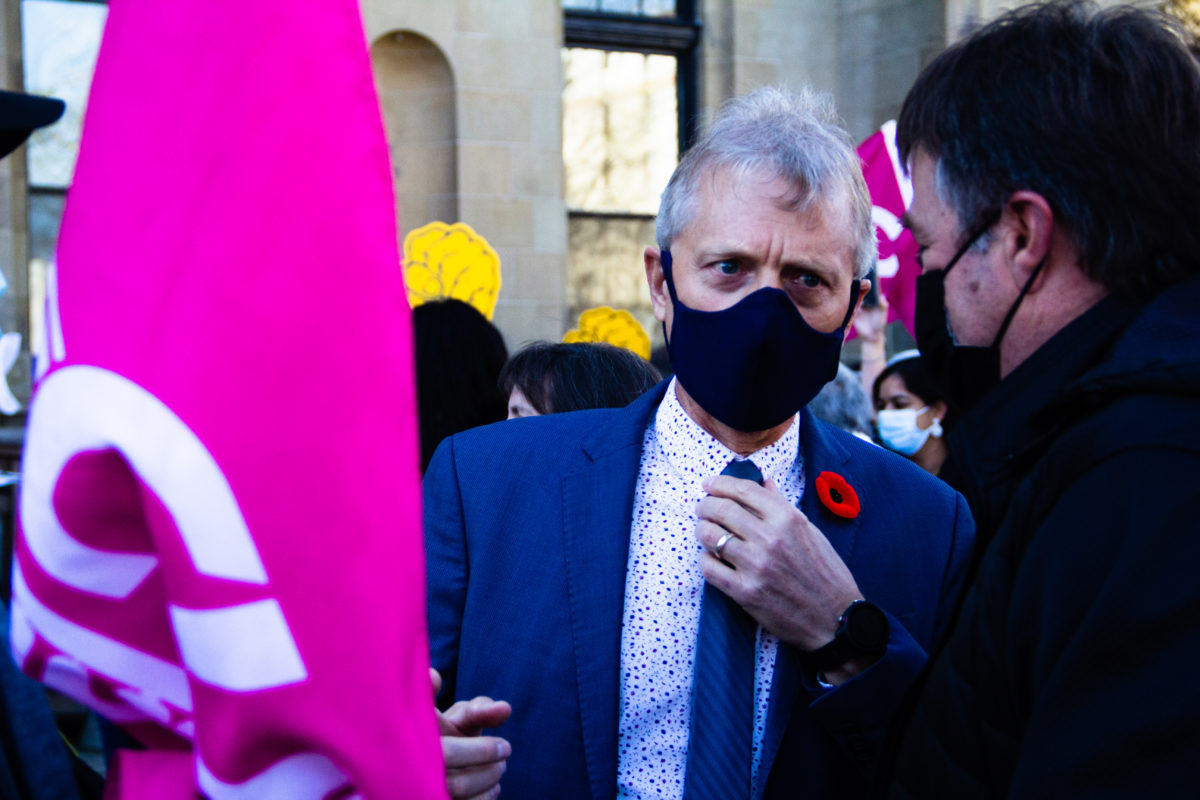
Earlier on Friday at the outdoor CUPE briefing, Higgs’ appearance was met with boos from the crowd of striking CUPE members. He stood face-to-face with the table of CUPE’s centralized bargaining team until he was handed the microphone. He walked to the top of the legislature steps and defended his decision to include pension changes in the province’s outlined offer.
The offer, which was made on Nov. 4, includes a two per cent wage increase plus $0.25 per hour yearly for the next five years; 100 per cent rate of pay for casuals; suspension of all strike activity for CUPE Local 1252 healthcare workers and CUPE Local 1190 and 1251 laundry workers; and targeted concession for education workers with all pension risk shifted to members.
The counteroffer, presented by CUPE to the New Brunswick government at 2:20 a.m. on Nov. 5, includes a two per cent wage increase per year for the next five years plus $0.25 per hour for the first three years and $0.50 per hour for years four and five; 100 per cent regular rate of pay for casuals; suspension of all strike activity for all 10 CUPE locals; and withdraw on pension concession.
After Higgs argued his defence for pension changes, he called for a more formal question-and-answer period where strikers could ask targeted questions.
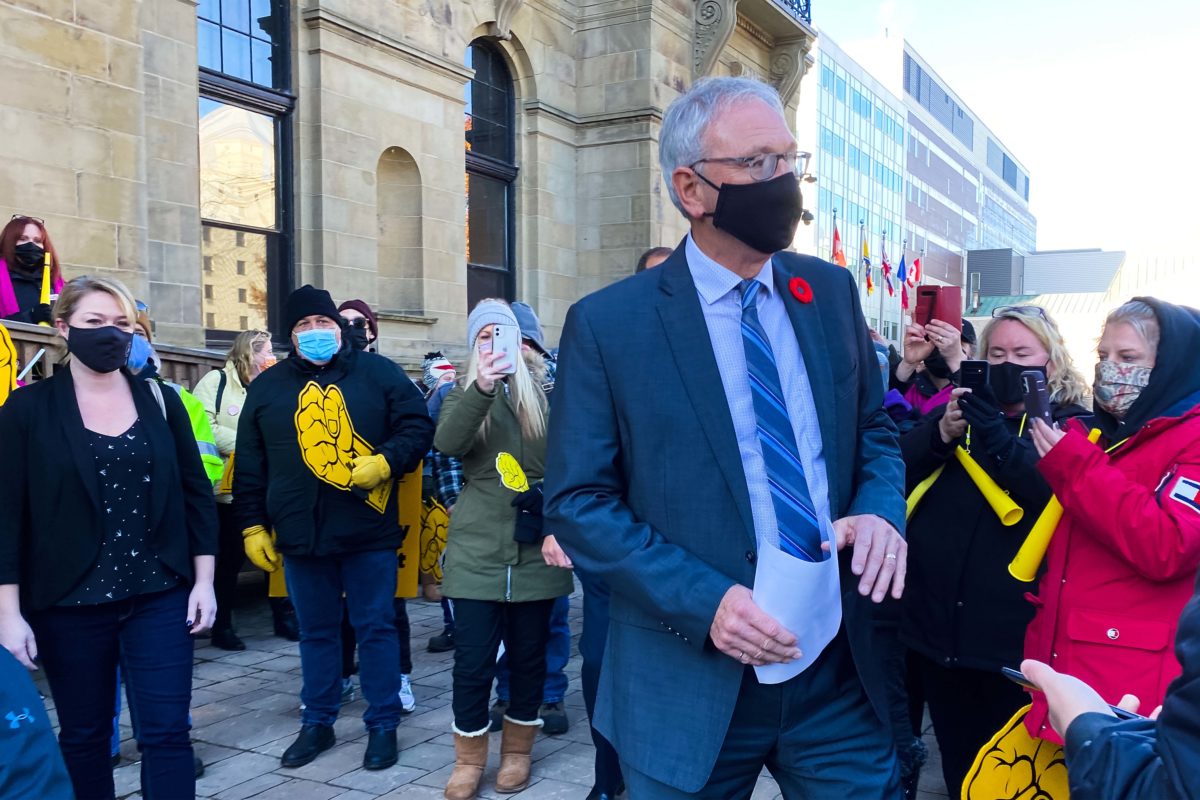
A woman in the crowd, CUPE Local 908 president Ellie Michel, made her way towards the front of the steps, but before she had the opportunity to ask her question, Higgs walked away.
“What I wanted to ask him was, when we came together … it was under one rule that we discussed wages and wages only. That was his rule. We came to the table in good faith, not to discuss pensions that belong to other locals,” said Michel. “So, that’s what I wanted to ask was, what changed?”
Michel said her members want a decent wage increase. She said even with a five per cent increase, that equates to between $34 and $37 weekly before taxes. She said when looking at those numbers daily, it wouldn’t buy a quart of milk and a loaf of bread.
“We shouldn’t have to make decisions like, ‘do I buy my medication? Do I pay the rent? Do I buy groceries? Do I pay the power bill?'” said Michel. “We as New Brunswickers, we’re working every single day, we should not have to make those decisions.”
What happened before Nov. 5?
The CUPE legal strike began on Oct. 29, closing public schools across the province and shifting to online learning for Nov. 1.
Since Nov. 1, more than 11,000 health appointments, procedures and surgeries were cancelled along with some COVID-19 assessment centres facing closures or reduction in capacity.
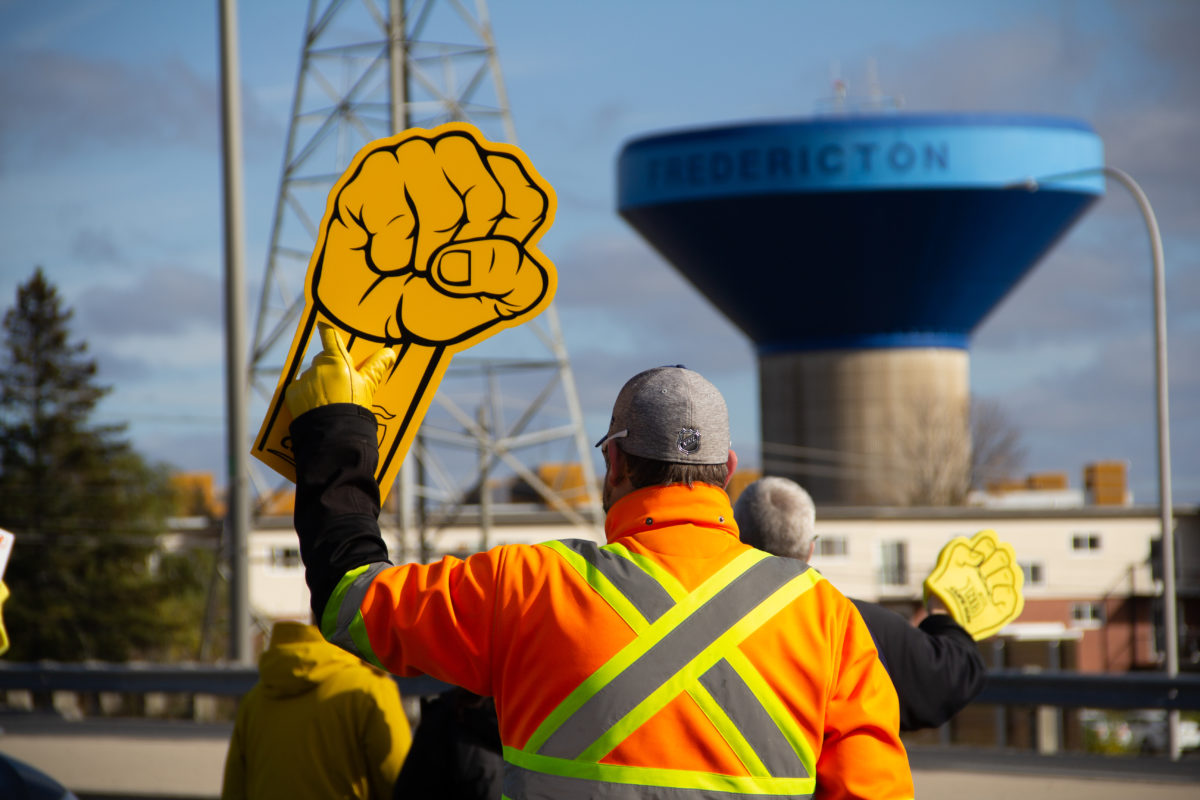
The CUPE strike involves around 22,000 provincial employees in 10 locals, including N.B. community college and WorkSafeNB staff, court stenographers, healthcare, education, transportation and agriculture, social workers and jail guards.
CUPE members found support on the picket lines on day five of the strike when a police-estimated 4,000 participants filled the lawn of the legislature, thrusting yellow signs into the air.
“It was awe-inspiring. It was emotional. It was just a combination of so much anxiety and overwork and stress,” said Michel. “The people have spoken and the people are who call the shots.”
Sandy Harding, regional director of CUPE Maritimes, addressed the crowd. She pointed to her son holding a sign.
“See that sign over there?” she said. “There’s my little Jack and he says, ‘Mr. Higgs, settle this so my mom can come home.'”
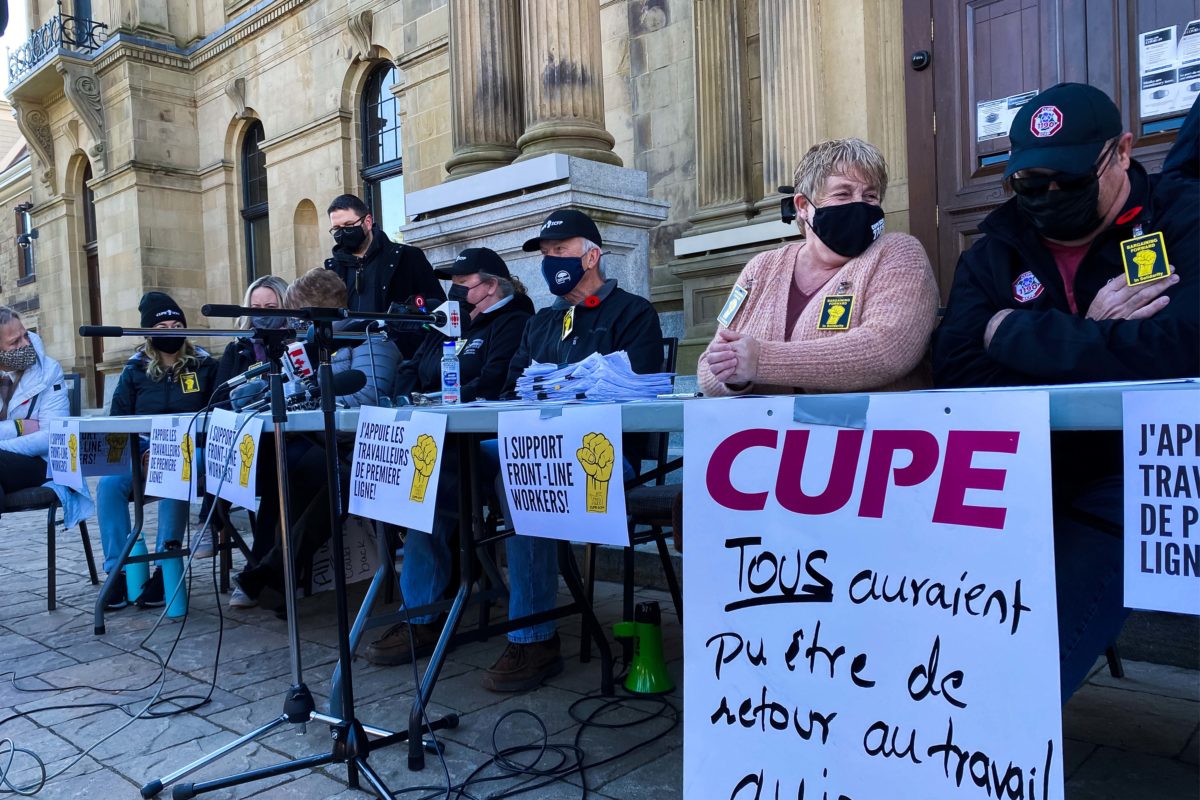
Harding said the New Brunswick government was notified of the strike action at 11:39 p.m. on Oct. 28 but chose not to inform parents until the next morning.
She said as a mom, she was frustrated with the messages telling parents what their children were losing because of the CUPE strike.
“Everything that students have is because of CUPE,” she said, the crowd finishing her sentence. “Bullying has no place in the education system and [the government] better stop bullying.”
What does the back-to-work order mean for CUPE?
In the revised mandatory order on Nov. 5, Hugh Flemming, minister of justice and public safety, wrote that the CUPE strike activity had significant impacts on access to urgent healthcare in N.B, including reduced COVID-19 testing and vaccinations, reduced access to essential hospital tests and procedures and impacts on cleaning of healthcare facilities and equipment.
CUPE healthcare employees must report to their next scheduled shifts or face fines.
The minimum fine for failure to comply with the order is $480 and the maximum is $20,400. The same fine amounts stand for anyone who counsels another person into not complying with the order. If a person fails to comply with the order, CUPE may also face a minimum fine of $100,000 with no maximum per day or part of a day.
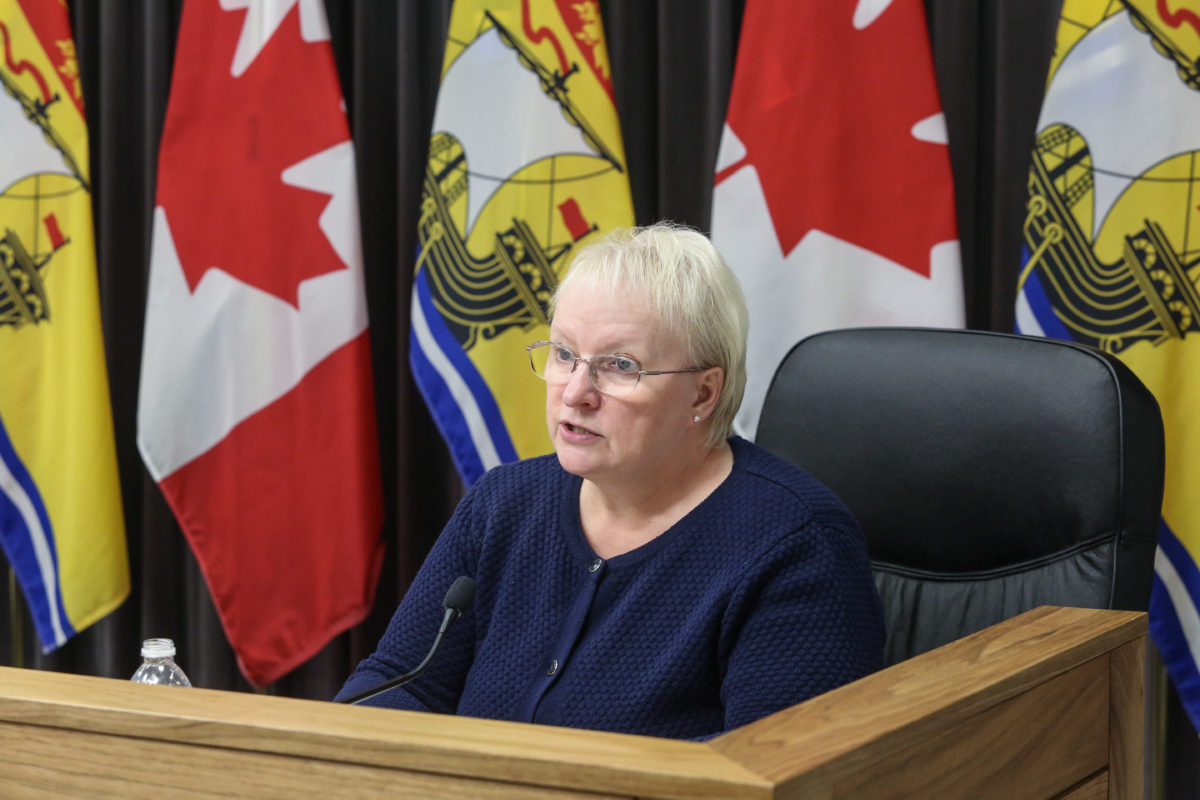
During the news conference held by the New Brunswick government on Nov. 5, Health Minister Dorothy Shephard said the province’s healthcare system is “in serious jeopardy” and can’t withstand another weekend at the red alert level.
Shepard said she is aware of messages on social media encouraging employees to ignore whatever measures the government puts in place.
But she doesn’t think CUPE members would want their actions to endanger others.
“While I understand the frustration people are feeling, I want you to think about how you would feel if it were your mother, father, child, spouse or friend in a hospital right now,” said Shephard during the conference.
“I believe that at heart, we all want the best for one another right now and I encourage you to follow your heart as you make your decisions.”
